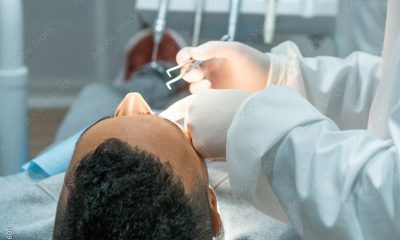Healthcare
Dental care in Spain
As a foreigner in Spain, understanding how the dental care system works is essential for ensuring you receive the proper dental care you need.
Here’s a comprehensive guide:
Public vs. Private Dental Care
Public Dental Care:
Public healthcare in Spain is generally of high quality, but dental care is not comprehensively covered by the public health system (Sistema Nacional de Salud).
Basic dental services are provided for free to children under 15 and pregnant women.
However, for most adults, public healthcare only covers basic procedures such as extractions.
If you require more extensive dental work, such as fillings, root canals, or cosmetic procedures, you will need to pay out-of-pocket or seek private dental care.
Private Dental Care:
The majority of dental care in Spain is provided through private practices.
Private dentists offer a full range of services, including preventative care, restorative treatments, orthodontics, and cosmetic dentistry.
Costs can vary significantly depending on the complexity of the procedure and the dentist’s location.
Dental Insurance
Private Dental Insurance:
Many Spaniards and expatriates opt for private dental insurance to cover the costs of dental treatments.
Private dental insurance plans can reduce the cost of treatments and offer access to a wider network of dental professionals.
Insurance premiums vary based on the plan’s coverage and the provider.
Travel Insurance:
Some travel insurance plans may cover emergency dental treatment. It’s important to check the specifics of your policy.
How to Access Dental Care as a Foreigner
Finding a Dentist:
You can find dentists through online searches, recommendations from friends or colleagues, or by consulting local directories.
Many private dental clinics have websites where you can find information about their services, prices, and languages spoken.
In tourist areas and larger cities, it is common to find dentists who speak English and other languages.
There is for sure a lot od dentist there can serve you inb your own languae
Making an Appointment:
Appointments can typically be made over the phone or online.
Some clinics accept walk-ins, but it is generally advisable to book an appointment in advance.
Cost of Treatment:
The cost of dental treatment in private clinics can vary. For example, a routine check-up might cost between €30-€50,
while more complex procedures like a dental crown can cost several hundred euros.
Always inquire about the cost before undergoing any treatment. Many clinics provide detailed price lists or can give you an estimate after an initial consultation.
Payment:
Most clinics accept payment by cash, credit card, and sometimes health insurance.
It is important to check if the clinic accepts your specific insurance plan before starting treatment.
Emergency Dental Care
In case of a dental emergency, you can visit the emergency department of a public hospital, but keep in mind that they may only provide pain relief and temporary solutions.
For more comprehensive emergency treatment, you will need to visit a private dental clinic.
Additional Tips
Language Barrier:
If you don’t speak Spanish, look for a dentist who speaks your language.
Many dentists in urban areas and tourist regions speak English.
Documentation:
Ensure you have all necessary documentation, such as identification and proof of insurance, when visiting a dentist.
Regular Check-Ups:
Regular dental check-ups are important to maintain good oral health.
It’s advisable to schedule appointments periodically even if you don’t have immediate dental issues.
Understanding these aspects of the dental care system in Spain can help you navigate your dental health needs effectively as a foreigner.
If you have any specific concerns or need recommendations for dental clinics, feel free to ask
